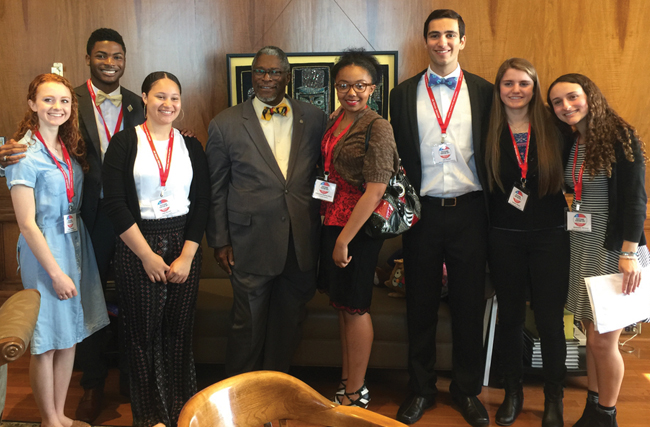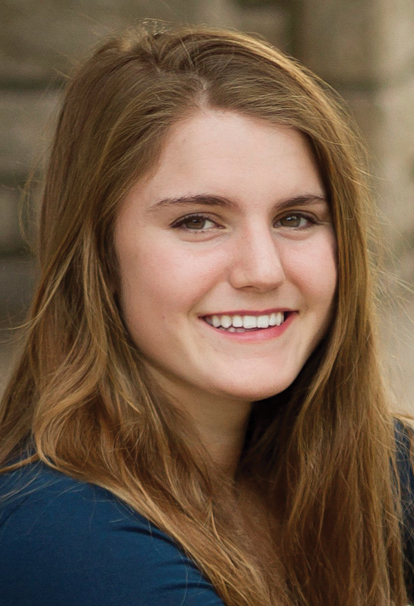
 One of the first memories of religious learning I can recall involves “circle time” at the Jewish Day School from which I recently graduated. Before delving into all the intricacies and complexities of our religious heritage, culture and texts, a teacher summarized it all with the story of the great scholar Hillel, who was confronted by a curious stranger who demanded he explain the entire Torah while standing on one foot. His response was simple yet powerful: “Do not treat your neighbor with unkindness. This is the entire Torah, the rest is interpretation. Now go and learn.” (Babylonian Talmud, Tractate Shabbat, Page 31a). Years later, after countless hours studying everything from theology to Jewish tort laws, I still remember that message: my Jewish identity is founded in a religion of love and compassion, and that my individualism is inherently and powerfully intertwined with my relationship to everyone else around me. This aphorism, echoed in nearly every religion, inspires me to fulfill the promise of building bridges of trust, support and empathy with all of my non-Jewish neighbors.
One of the first memories of religious learning I can recall involves “circle time” at the Jewish Day School from which I recently graduated. Before delving into all the intricacies and complexities of our religious heritage, culture and texts, a teacher summarized it all with the story of the great scholar Hillel, who was confronted by a curious stranger who demanded he explain the entire Torah while standing on one foot. His response was simple yet powerful: “Do not treat your neighbor with unkindness. This is the entire Torah, the rest is interpretation. Now go and learn.” (Babylonian Talmud, Tractate Shabbat, Page 31a). Years later, after countless hours studying everything from theology to Jewish tort laws, I still remember that message: my Jewish identity is founded in a religion of love and compassion, and that my individualism is inherently and powerfully intertwined with my relationship to everyone else around me. This aphorism, echoed in nearly every religion, inspires me to fulfill the promise of building bridges of trust, support and empathy with all of my non-Jewish neighbors.
I began to visualize the impact of this story — not only personally, but also in the nation and world — when I joined my Jewish high school’s community justice partnership with University Academy and its largely Christian, African-American student body. Together, we learned about the Civil Rights movement before journeying to the South on a learning experience like no other. United as a group of kids of all colors, creeds and cultures, our connections echoed the partnership of Abraham Joshua Heschel and Martin Luther King Jr. Like those incredible forces of positive change, our friendships grew into commitments to each other — to protect our rights and advocate for love over hatred. As Heschel affirmed, “When religion speaks only in the name of authority rather than with the voice of compassion, its message becomes meaningless.” (“God in Search of Man: A Philosophy of Judaism”) Again, the message of Hillel — the message of coexistence and mutual care — resounded true.
As studying the Civil Rights movement elucidated the monumental possibilities catalyzed by interfaith dialogue, I was quickly galvanized to take action in my own life. Last summer, I applied as a delegate for Anytown, a weeklong youth leadership institute sponsored by the National Conference for Community and Justice (founded as the National Conference for Christians and Jews). I was hooked by the “social justice” and “diversity” descriptors on its website, so I dove in, even though I had never heard of it, let alone knew anyone who had previously attended. On the first day, I cautiously joined a circle of teens singing about a moose. Soon, however, I looked around the lawn and realized I wasn’t alone in my trepidation. We were all completely unfamiliar not only with each other, but with the religions, cultures and backgrounds we all represented. The song was unavoidably hilarious, though, and our skeptical smiles quickly turned into laughter. Just like that, we had broken the ice.
The next morning, I found myself standing in a line, holding hands with the other delegates. To grapple with that day’s topics, racism and classism, the staff began to ask us questions and prompt us to step forward or backward depending on our answer. “Step backward if you have wished to see more people of your race in TV and media.” “Step forward if you have never been afraid of calling or encountering a police officer.” I moved forward again and again and again. Finally, we were asked to look around. Immediately, I noticed one Hispanic boy who, at the beginning of the activity, had been holding the hand of the white counselor next to him. They fruitlessly tried to stay connected as they moved one step, two steps, three steps apart, attempting to bridge the gap that separated them, which was now more than 30 feet wide.
It hit me then. I knew why I needed to be there. By throwing myself into an honest exploration of privilege and discrimination, I was jolted awake to injustices I hadn’t fully internalized.
During the next day, focused on sexism, I found myself on the other side of the 30 foot chasm. Again, I felt depressed and angered, and felt a renewed sense of urgency. These recurring painful and powerful moments fostered a much deeper motivation to make my own impact and actualize the kindness Hillel emphasized. At Anytown we grew to love ourselves and each other for characteristics too often used to compartmentalize and divide us. Experiencing both sides of that stepping activity widened my eyes to the consequences of hatred and the urgent need of taking steps toward those different than us. As we joined together, the teen delegates of Anytown and I fostered a deep and lasting acceptance, appreciation and ardor for each other, not despite but because of our differences. No matter where we came from, we all wanted to hold on to each other through every activity and experience we’d be faced with. If those unbreakable bonds could be built from scratch in under a week, I realized, the potential connections to everyone I may encounter are wonderful and infinite.
Though Hillel’s message has remained a constant source of inspiration, its message continues to expand. What I once held onto as a sweet parable promoting “kindness” has evolved into a multifaceted responsibility to bring goodness to all of my neighbors. Further, I take the word “neighbors” not as a community of my friends, peers or geographical acquaintances; it is the assertion that I must explore and interact with everyone with the mindset that they are not strangers but rather world neighbors. I will continue to search for new meaning within the interpretations and details of my religion and others, knowing that our shared foundation of lovingkindness can ignite positive change worldwide. I will welcome and seek out new sparks of dialogue, connection and action. I believe that with this outlook of open-mindedness, kindness and coexistence, we can all make the world a better place. “Do not treat your neighbor with unkindness. This is the entire Torah, the rest is interpretation.” Whether I am beginning kindergarten, college or any other phase of my life, I will devote myself to these words and ready myself for action. “Now go and learn.”
Haidee Clauer is the the winner of the 2018 Margolis Memorial Essay Contest sponsored by Kansas City Lodge #184 B’nai B’rith. She is a 2018 graduate of the Hyman Brand Hebrew Academy and is a freshman at Pomona College in Claremont, California. Haidee is the daughter of Mira Klausner and Todd Clauer.


